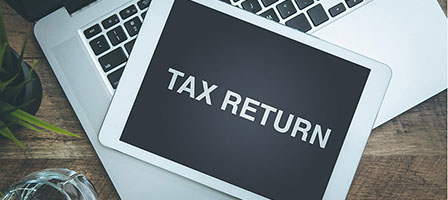What Are the Tax Benefits and Drawbacks of Home Ownership?
- Learn about the current historically low interest rates.
- Find out which expenses are included in the purchase costs of a home.
- Learn how to deduct points in the year of a home’s purchase.
- Discover the rules regarding interest deductions on mortgages.
- Find out what should you know about deducting interest when you refinance.
- Learn more about deductions for property taxes.
- Find out how home ownership may benefit you in regard to inflation.
- Learn about the gain exclusion when selling your home.
- Check out our worksheet to help you analyze the costs of renting vs owning.
Housing is a big expense for everyone. The choice generally involves either renting or purchasing – and financing that purchase with a home loan. As of November 2020, the nationwide average for a 30-year fixed-rate mortgage was just under 3%. That’s the lowest it has been in the last 50 years or even longer. Many individuals are taking advantage of the historically low rates to buy their first home, sell their existing home to move up to a more expensive one, or refinance their existing mortgage. Some who own their homes free and clear are even taking out loans to lock in the low interest rates. Below, Fiducial looks at the tax benefits and drawbacks of buying, financing, and owning a home.
Purchase Costs
Purchasing a home includes costs related to escrow, attorney fees in some cases, title insurance, and other fees. You may incur similar expenses when refinancing an existing loan. None of these costs are deductible at the time of the purchase or refinance, but generally, they can be added to the home’s cost (its “basis,” in tax lingo) and are deductible when the home is sold. Purchase or refinance costs can also include loan points and property-tax adjustments, but these are not part of the home’s basis because they may be deductible at the time of the purchase or refinance.
Points
Points essentially equal prepaid interest. Under normal circumstances, you must amortize (ratably deduct) points over the life of a loan. However, per a special tax rule, points that are paid during the purchase of a home are eligible to be deducted in the year of the home’s purchase (provided that the homebuyer uses itemized deductions). However, this rule does not apply to points on VA and FHA loans. We consider those points as fees and not deductible at the time of purchase. If you pay points on a loan refinance, generally, they will have to be amortized over the length of the loan.
Property Taxes
The property-tax payments for an escrow can result in either a credit or a debit, depending on whether the seller has prepaid the property taxes and on the amount of the buyer’s prorated tax share (which is based upon the period of ownership). In some cases, the buyer must prepay the taxes for a bill that will come due shortly after the purchase.

Mortgage Payments
Mortgage (loan) payments include both principal and interest. The principal payments pay down the mortgage balance and are not deductible. However, the interest paid on a loan is deductible for taxpayers who itemize their deductions. Almost all of the loan payments for recently purchased homes consist of deductible interest.
There is a limit to the amount of deductible interest, however; it is based on the amount of the loan and on when the loan took effect. If a loan is for $750,000 or less and the owner has no other home loans, then all of the interest is deductible. However, this may not be the case if a home loan exceeds $750,000 or if the owner has more than one home loan. If you have any questions regarding the limitations for acquisition loans, call your Fiducial representative.
If you are thinking about refinancing an existing loan, be advised that the interest on a new loan in excess of the existing balance on a loan used to acquire the property won’t be deductible for federal purposes unless the loan proceeds are used to make improvements to the home. In other words, if you take the equity out of your home and don’t use the loan funds to make substantial improvements to the home, then the interest on the equity portion of the loan will not be deductible.
The same is true if there is currently no loan on a home you own. Prior to the tax-reform changes that generally became effective in 2018, homeowners who itemized could deduct interest on an equity loan of up to $100,000. Federal law no longer permits equity interest as a deduction, but some states still do allow it.
Property Taxes
Property taxes can represent a sizable portion of housing expenses, particularly in states with no income tax. Lenders may require an impound or escrow account; the payments for such an account combine prorated property taxes and homeowner’s insurance costs with monthly mortgage payments. The goal is to prevent substantial lump-sum tax and insurance payments by paying the costs throughout the year.
For tax-deduction purposes, only the portion of the property taxes paid directly by the homeowner or transferred from an impound account to the taxing agency during the owner’s calendar year is allowed. This sometimes results in confusion because the amount paid may not match the property tax bill from a real property tax agency that operates on fiscal years.
Also, keep in mind that the tax reforms effective through 2025 include a $10,000 annual limit on itemized deductions for costs related to state and local property taxes and either state and local income or sales taxes.
Inflation
The costs of both rent and homeownership rise with inflation. Purchasing a home locks in the bulk of housing costs for the foreseeable future. There will still be nondeductible expenses for repairs and maintenance, though. Under normal circumstances, a purchased home will continue to appreciate in value.
Gain Exclusion
When selling a home you have owned and used for at least two out of the preceding five years, single taxpayers can exclude $250,000 of the resulting gain from taxation. Married couples can exclude $500,000 of that gain. An option for those who are handy with tools is to purchase a fixer-upper property in the right neighborhood. Then, you can fix it up, and sell it for a profit. You may exclude the profit after owning and living in the property for two years.
Renting versus Owning
Comparisons of the day-to-day costs of renting versus owning can be complicated. Although home-mortgage interest and property taxes are deductible, only the amount that exceeds the standard deduction will provide any tax benefit. Taxpayers in higher tax brackets experience greater benefits from such deductions, of course. You may use the following worksheet to estimate monthly after-tax housing expenses; prospective homeowners can then compare this value to their current rent payments.
This worksheet does not consider maintenance expenses, utility costs (which are usually higher for homeowners than for renters), and certain other costs of homeownership.
How to Use the Worksheet
After finding a prospective home, determine the annual mortgage interest, the estimated annual property tax (which is based on the sale price), the estimated cost of home insurance, and – if the property is governed by a homeowners’ association – the annual amount of that association’s dues. Use these amounts in the worksheet to determine the monthly after-tax housing expenses, which are comparable to a rent payment.
The worksheet can also be used to determine the tax savings if a loan is being refinanced. Complete the worksheet once with the data for the current loan. Complete it a second time with the refinancing information. Then, compare the results to see what the tax savings will be. Keep in mind that if the current balance of a home loan is refinanced at a lower interest rate, the amount of interest that will be paid and the deductible will also go down.



Next Steps
Purchasing a first home is a big step. First-time homebuyers may not be familiar with every aspect of the process. It is important for these individuals to avoid surprises and to consider the after-tax costs of home ownership when determining how much they can afford. Similarly, those who already own a home may want to determine how refinancing a current loan will affect their income taxes and overall housing expenses before taking out the refinance.
Do either of these situations apply to you? Do you have questions related to the impact on your taxes? Call Fiducial at 1-866-FIDUCIAL or make an appointment at one of our office locations to discuss your situation.
Ready to book an appointment now? Click here. Know someone who might need our services? We love referrals!
For more small business COVID-19 resources, visit Fiducial’s Coronavirus Update Center to find information on SBA loans, tax updates, the Paycheck Protection Program, paid sick and family leave, and more.









